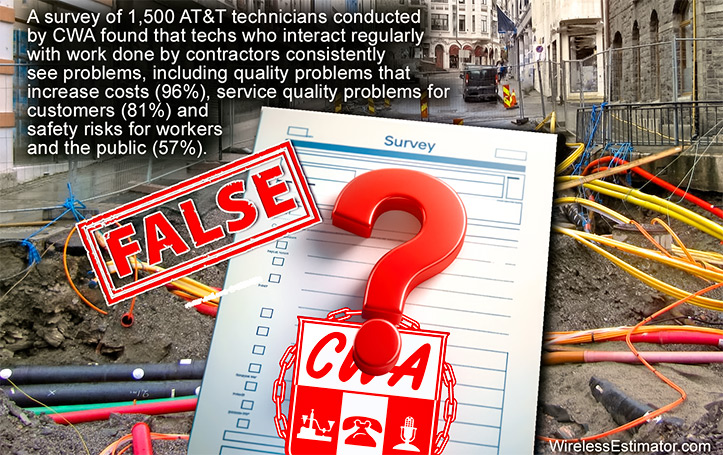
FALSE SURVEY FINDINGS by the Communications Workers of America helped sway Minnesota legislators to pass a bill that could threaten the state’s broadband rollout, three industry associations said in a request to Governor Tim Walz to reconsider the bill that adds layers of expenses and work upon infrastructure contractors.
A newly signed bill in Minnesota, endorsed by Governor Tim Walz, prioritizes fair labor practices in broadband network construction. When distributing broadband funding, the Minnesota Broadband Office must now favor applicants who pay prevailing wages and offer comprehensive benefits like health insurance, retirement plans, and training opportunities.
Several broadband providers across Minnesota unsuccessfully urged state lawmakers to drop Article 10 of the House Labor Omnibus bill last month, citing that it would increase costs, bureaucracy, and investments in broadband deployment.
The Communications Workers of America (CWA) labor union, which supports the legislation, has accused the broadband industry of unsafe underground construction practices.
After being challenged by broadband providers about this claim, the union hired North Star Policy Action (NSPA) to write a report supporting its claims.
They said the firm appeared to be run by a single individual with no expertise or prior experience in underground construction or broadband.
The report admits the data it relied on is “plagued by many unknowns.” Yet the letter to Governor Walz said the author was quick to make deeply flawed, sensationalized findings.
NSPA cited “a recent CWA national survey” taken in October 2020 to find that “57% of telecommunications technicians said they saw safety risks for workers and the public.” The “national survey” was of 1,500 AT&T subcontractors’ employees. Compounding the associations’ concern was their knowledge that AT&T provides no wireline broadband services in Minnesota and will not be eligible for BEAD funding in Minnesota.
New Law Could Cripple Minnesota’s BEAD Funding
In its request to Governor Walz, the MN Cable Communications Association, MN Telecom Alliance, and WISPA said, “We want to be clear: This language will essentially make it impossible for any internet service provider in the state to participate in the BEAD or any other future border-to-border grant program.”
With $652 million in BEAD funding and private sector investment raising it to $1.3 billion, the associations said the legislation would result in many Minnesotans remaining unserved indefinitely.
Key Provisions of the New Law
Moving forward, any company receiving public funds for building broadband networks must submit detailed workforce plans to the Broadband Office. This includes data on contractors working on the project and wage information. The law also introduces new safety training requirements aimed at curbing corner-cutting practices by subcontractors, enhancing overall worker safety.
Broader Legislative Changes
This bill is part of a larger omnibus package that significantly changes Minnesota’s labor and employment laws.
Other key provisions include:
- Paid Family Leave: Amendments have expanded coverage and increased the payroll tax rate to support these benefits.
- Sick and Safe Time: Adjustments clarify how earned sick time is calculated, including pay rates and funeral leave benefits.
- Independent Contractor Classification: New requirements, particularly for the construction industry, add penalties for misclassification.
- Non-Solicitation Agreements: A new ban on certain restrictive covenants between service providers and their customers will take effect on July 1, 2024.
Job Postings Will Be Required to Include Compensation and Benefits
Beginning January 1, 2025, employers with 30 or more employees in Minnesota must meet the state’s new pay transparency requirements.
Companies must include a starting salary range in their ad, or if there is no range, a fixed pay rate. The range must consist of a minimum and a maximum amount based on the employer’s good-faith estimate of the opportunity for each position and cannot be open-ended. All job postings must include a description of all the benefits and other compensation, including any health or retirement benefits. A job posting that states pay is “starting at $18 an hour and provides competitive benefits will no longer be allowed.
Implications for Employers
Minnesota employers must adapt to these changes promptly. This includes updating job postings, revising leave policies, ensuring compliance with pay transparency and classification laws, and preparing for new training and safety standards in broadband construction.
The legislation promotes fair labor practices and worker safety while expanding broadband access across Minnesota. Employers are encouraged to seek legal counsel to navigate these changes and ensure compliance.

















